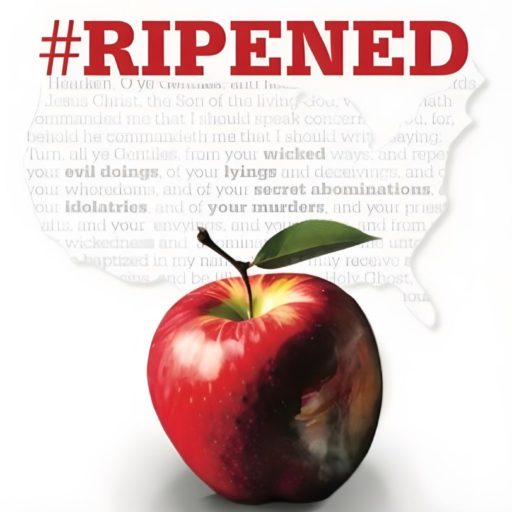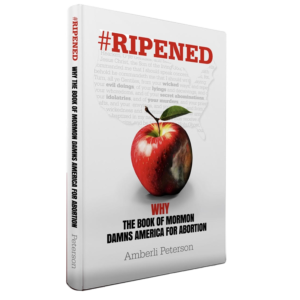There are a handful of words in The Book of Mormon that are so ubiquitous that over time, we can stop seeing them. Prior to January 2020, the word iniquity had been one of those words for me. It appears in the text of The Book of Mormon 109 times. For context, that is triple the number of times it shows up in the New Testament, the Doctrine and Covenants, and The Pearl of Great Price combined. Only the Old Testament has more mentions at 186. Despite being used over 100 times in The Book of Mormon, I had never previously considered the specific meaning of that word and the myriad of dire implications it held for the people and its precipitous role in their demise as a nation.
Etymologically, the word “iniquity” derives from the Latin combining the prefix in-, meaning “not,” and aequus, which means “equal” or “just.” Hence, the literal meaning of iniquity is “not equal” or “not just.”
Therefore, in a broader context, the term iniquity characterizes any situation where a person (or group) acts in a way that is contrary to the Golden Rule, which is stated as: “Do unto others as you would have them do to you.” In short, the iniquitous party elevates their own needs, rights, and/or desires above another’s needs, rights, and/or desires.
Sin vs. Iniquity
To understand the concept of iniquity in a scriptural context, it is essential to distinguish between iniquity and sin.
Though the term iniquity can seem synonymous with sin, it is not. Biblical and religious scholars assert that, though they are used correspondently and even interchangeably at times, there is a difference between the two, and understanding the difference is essential.
Sin = To Miss the Mark
According to Hebrew scholars, the Hebrew word chattah is most often translated as sin and signifies “to miss the mark.” It can indicate doing something against God or against a person in contrast to what is right, or doing something that will have adverse effects, or neglecting to do something you know is right. In essence, “sin” is the common word used to describe that which “falls short of the glory of God” (Romans 3:23).
Iniquity = Intentional Twisting of a Given Standard
Iniquity, on the other hand, as translated from the word awon, relates more to the inner character and points to an intentional twisting of a given standard. In other words, iniquity indicates a conscious decision; to commit iniquity is to proceed without repentance. Micah 2:1 declares,
“Woe to those who plan iniquity, to those who plot evil at their beds! At morning’s light they carry it out because it is in their power to do it.”
An instructive example of how iniquity carries with it a component of intentionality coupled with the power to do it is found in the story of King David’s fall from grace. In his Psalm of repentance (after being called out by the prophet, Nathan), David cries out to God, saying,
“Wash away all my iniquity and cleanse me from my sin” (Psalms 51:2)
This verse demonstrates two things. First, sin and iniquity are two separate and distinct terms that have different implications. And second, David was guilty of both at the same time. He sinned with Bathsheba by engaging in a consensual adulterous affair, but he committed iniquity when he used his position of power (as both the King and Commander-in-Chief of the army) to intentionally place Uriah in a position to be killed. Thus, when it comes to iniquity, intentionality, and power must be present for an act to be iniquitous. The Book of Mormon prophet Abinadi refers to the connection between intentionality, power, and iniquity in his confrontation with King Noah and his priests. Using his prophetic gift to perceive the thoughts and intents of his accusers, Abinadi calls out the intentionality behind their riotous way of life, “. . .ye have studied and taught iniquity the most part of your lives.” (Mosiah 13:11) Thus, with those words, Abinadi confirms that iniquity is an evil act committed on purpose by those with the power to do it.
Therefore, we can surmise that the use of the word iniquity in both a Bible and a Book of Mormon context relies on the presence of the following two aspects or components:
First, iniquity involves a dynamic of power that is “not equal” or is “unjust” (the literal meaning of the word), whereby the offending or iniquitous party leverages their position of power (physical, political, or financial) to commit an evil act, which produces an adverse result or condition. A few prime examples include rape, incest, physical assault, and of course, murder.
Second, iniquity involves intentionality. The offender commits the evil act on purpose and then shows little or no remorse for their actions.
How does iniquity take hold? It starts when seeds of desire (for power) are planted, nurtured, and then eventually take root in the heart of an individual. In time, the seeds produce poisonous fruits that have devastating consequences for all those who suffer abuse at the hands of the iniquitous individual who yields their power to gratify their own desires. After a while, these poisonous “fruits” multiply and ripple outward from the individual and begin to infect marriages, families, and communities. From there, if continued to be unchecked, iniquity ripples through entire nations, eventually engulfing a vast majority of the people until they become “ripened in iniquity.” This is what happened to the Jaredites and to the Nephites (not once, but twice).
As was the case with King David, God can and does forgive iniquity when the guilty party genuinely repents. However, when iniquity goes unchecked, it quickly becomes a shameless and intentional sin with no remorse or fear of God. When that happens in biblical contexts, it is often referred to as a “cup of iniquity” being “filled to the brim.” This typically pertains to nations who have forsaken God entirely. Continued iniquity leads to irregular desires, which leads to a degenerate mind. Romans 1:28-32 describes this deviation in graphic detail. The sons of Eli are biblical examples of sinners whom God judged for their iniquities. Rather than repent, Eli’s sons continued in their evils until remorse was no longer possible.
As mentioned, the word iniquity appears 109 times in The Book of Mormon. It is interesting to note that the first time it is used in the narrative is in 1 Nephi chapter 3. While smiting Nephi and Sam with a rod, Laman and Lemuel are rebuked by an angel who declares that it was due to their iniquity that the Lord had chosen Nephi to be a ruler over them.
And it came to pass as they smote us with a rod, behold, an angel of the Lord came and stood before them, and he spake unto them, saying: Why do ye smite your younger brother with a rod? Know ye not that the Lord hath chosen him to be a ruler over you, and this because of your iniquities? (1 Nephi 3:29)
In that revealing incident, we see the two components of iniquity in play: Laman and Lemuel, as the older brothers, were leveraging their physical power (with rods) to intentionally commit an unjust act of violence against their younger brothers with seemingly no remorse or sign of stopping until an angel is sent to intervene.
After that incident, the word is mentioned another ten times throughout the narrative in 1 and 2 Nephi in a handful of different incidences which grew progressively more violent over time, such as when Nephi was tied up on the boat and left to die until the whole crew was about to be drowned in the depths of the sea. From there, the word iniquity shows up quite often in subsequent books, such as in Mosiah and Alma, mainly to rebuke those committing great iniquities, such as King Noah and Alma the Younger.
But when we get to the book of Helaman, a new strain of iniquity bursts onto the scene; one that had not been mentioned previously: secret murder.
In viewing murder through the lens of iniquity, not only is murder terribly unjust, but it’s done with intentionality by the murderer who leverages power (physical or otherwise) over the victim to take his or her life against their will. The act of murder results in a permanent and irreversible condition, leaving the murderer no way to make adequate restitution and, therefore, is the most egregious form of iniquity.
But when murder is committed in the womb, in the act of abortion, which is characterized as “secret murder” by Jesus, Mormon, and Moroni (as discussed in my book #Ripened), it becomes readily apparent why secret murder is the very most egregious form of iniquity for several reasons. One of the biggest reasons is that the power dynamic involved in the act of abortion is drastically skewed towards the offender. Honestly, is there any more unjust or unequal balance of power than in that scenario—an abortion? Where an adult brutally takes the life of a tiny little infant who is helpless, defenseless, and has no way to avoid or escape the intentional and unconscionable violence being inflicted upon them by one who holds all the power to do it.
Ergo, it is no wonder that after 85 years of the Nephites engaging in the iniquitous practice of secret murder as abortion (once introduced to them by Gadianton), they became “ripened in iniquity” and were destroyed in the most violent ways imaginable on that great and terrible day in 34 AD (see 3 Nephi chapters 8 and 9).
And what about America? At 65,000,000 murders and counting, abortion is irrefutably America’s most egregious national iniquity. Is there any chance we won’t suffer the same cataclysmic consequences as the Nephites and the Jaredites for engaging in the same iniquity on a massive scale? Nope. That strains all credulity. God is a God of order and patterns. He is the same yesterday, today, and forever. Therefore, we can and must assume that His justice will come sooner or later–just as Nephi and Moroni prophesied it would. Their prophecies about what awaits us, the modern-day Gentiles, for this most egregious form of iniquity serve as the central premise of my book and are the reason I wrote it.
In confronting what lies ahead for America, according to the prophetic word of God, I suggest we deeply consider the timeless wisdom of Thomas Jefferson, who once said, “. . .God is just [and] His justice cannot sleep forever.” Hence, the time is now to stop shedding the innocent blood of our precious and holy ones, our babies, before it is too late.



Me and my wife always viewed iniquity as a habitual sin passed on from our ancestorial inclinations to sin.
Like a father who has anger problems inevitably passes that on to his son.
But I really like this breakdown and interpretation of the word iniquity.
We certainly are ripe in iniquity, may God have mercy on us and spare us, may conversion sweep our nation.
Great comments.
Thank you!
I truly believe in vibrational frequencies and energy medicine but had never considered the babies crying from the dust! It all makes perfect sense! Thank you for opening my eyes to the incredible truths in the scriptures that have been there all along!
Here is Webster 1828 dictionary.
Iniquity
INIQ’UITY, noun [Latin iniquitas; in and oequitas, equity.]
1. Injustice; unrighteousness; a deviation from rectitude; as the iniquity of war; the iniquity of the slave trade.
2. Want of rectitude in principle; as a malicious prosecution originating in the iniquity of the author.
3. A particular deviation from rectitude; a sin or crime; wickedness; any act of injustice.
Your iniquities have separated between you and your God. Isaiah 59:3.
4. Original want of holiness or depravity.
I was shapen in iniquity Psalms 51:2.